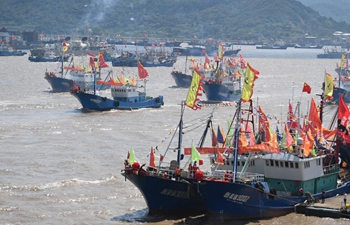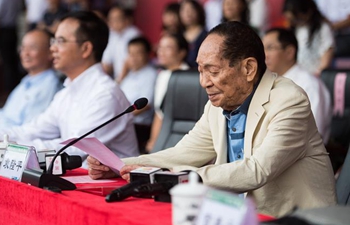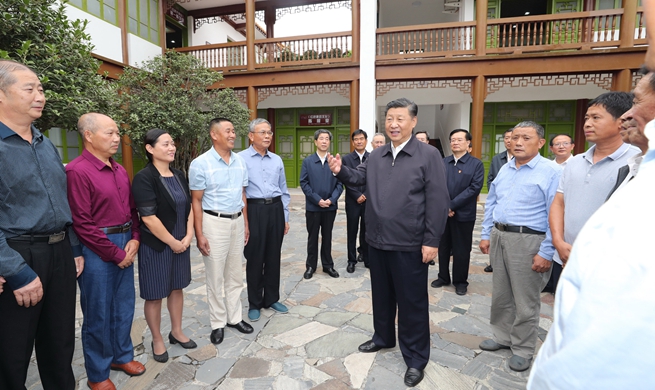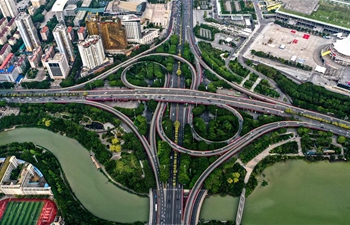WASHINGTON, Sept. 16 (Xinhua) -- Developing countries need to dramatically increase agricultural innovation and boost agricultural productivity to eliminate extreme poverty and cope with the adverse effects of climate change, according to a new report released by the World Bank on Monday.
"Two-thirds of the global extreme poor earn their livelihood in farming and productivity growth in agriculture has the largest impact of any sector on poverty reduction," the World Bank said in a report, titled Harvesting Prosperity: Technology and Productivity Growth in Agriculture.
While rising agricultural productivity in China and other countries of East Asia has contributed to impressive reductions in poverty, it has been too low to have similar impacts in Africa and in South Asia, where the largest remaining pockets of extreme poverty are to be found, the report said.
"Boosting productivity in the agriculture sector can lead to more and better jobs while enabling more people to move off-farm to cities to pursue other opportunities," said World Bank Group Vice President for Equitable Growth, Finance and Institutions Ceyla Pazarbasioglu.
"This requires comprehensive reform of domestic agricultural innovation systems, more effective public spending and the cultivation of inclusive agricultural value chains with an increased role for the private sector," Pazarbasioglu said.
The report examined the drivers and constraints to agricultural productivity, noting that the key driver for increasing agricultural productivity and rising incomes is the adoption of innovative technologies and practices by farmers.
"New technologies are improving access to and costs of information, finance and insurance in all sectors, including agriculture. This can help raise the productivity of low skilled farmers, but only with the right incentives and capabilities to develop and scale these technologies," Pazarbasioglu said.
The report also noted that the world is facing a widening research and development (R&D) spending gap, even as government funding for agriculture is reaching new heights.
Among developing countries, Brazil and China invested relatively high amounts into agricultural R&D, while Africa and South Asia had the lowest spending relative to agricultural GDP (gross domestic product), according to the report.
"Agriculture in Africa and South Asia faces an innovation paradox. While the economic returns to and growth effects of R&D and knowledge diffusion are documented to be very high, research spending is decreasing in critical areas of the world and local universities and think tanks are not keeping up," said William Maloney, World Bank chief economist for Equitable Growth, Finance and Institutions and the lead author of the report.
"Policy makers in developing countries need to give careful attention to reversing these trends and improving the broader enabling environment to encourage private sector contribution as well," Maloney said.
The report also warned that climate change, together with a deteriorating natural resource base, will hit agriculture hard, impacting the poor and vulnerable, precisely in Africa and South Asia.

















